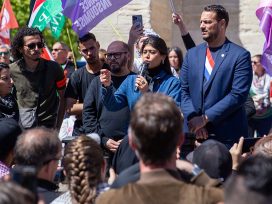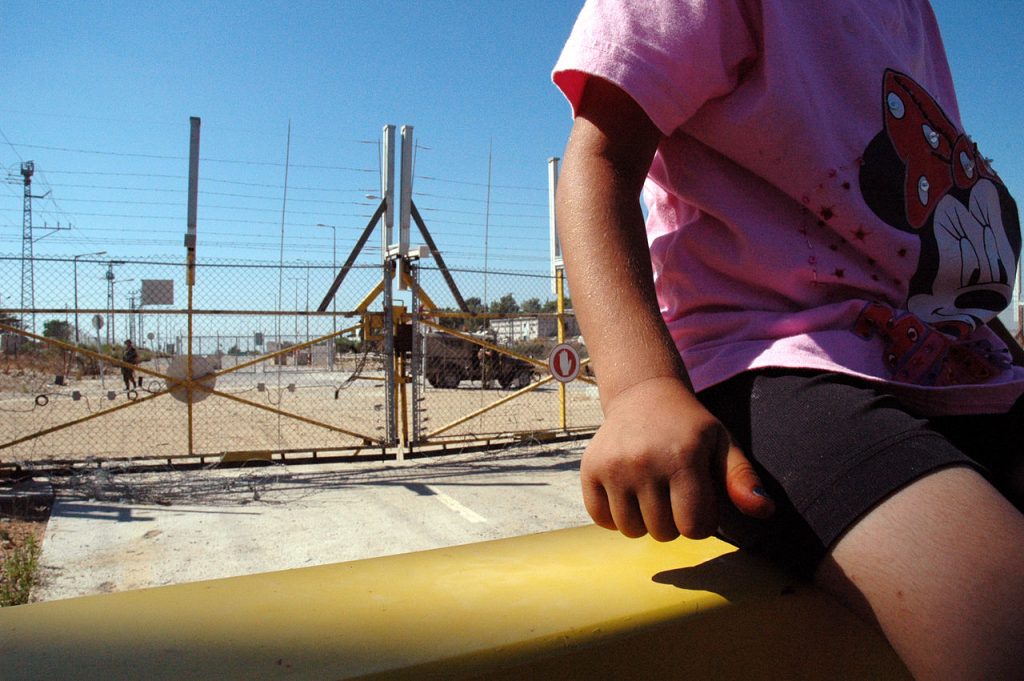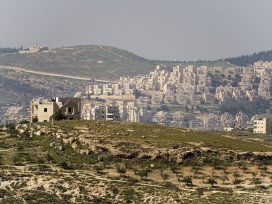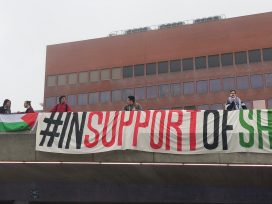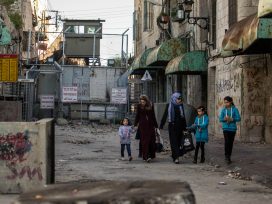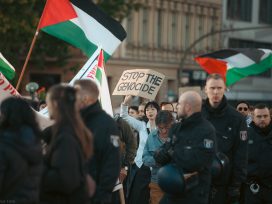‘When violence answers violence in a growing frenzy that makes the simple language of reason impossible, the role of the intellectual cannot be … to excuse from a distance one of the violences and condemn the other … that role is clarify definitions in order to disintoxicate minds and to calm fanaticisms, even when this is against the current tendency.’
Albert Camus, ‘Preface to Algerian Reports’ (1958)
I am no expert on Middle East politics. But I am a human being who teaches and writes about politics for a living, who also happens to be a Jewish American and who believes in human rights and cares about the world. Failing to think through the current unfolding situation, and to share my thoughts, is not for me an option.
The 7 October Hamas attacks on Israel and on Israelis were reprehensible and inhumane. No credible ‘resistance’ or ‘liberation’ movement engages in such brutal tactics, displaying such contempt for human life. And anyone on the left, or anyone in the name of ‘anti-imperialism’ or ‘solidarity’ with the wretched of the earth who can applaud, much less justify such terrorism, is contemptible.
It is obvious that such terrorist attacks require and will be met by an Israeli military response, to defend the Israeli population, to subdue the attacker and make further such attacks impossible, and to satisfy a public expectation that the perpetrators of such violations – in this case, Hamas leaders and militants – will be punished.
It is equally obvious that any sustained military response faces many difficult tactical, strategic and moral challenges. The regional situation is volatile, there are Israeli hostages in danger, and there are over two million Palestinians living in Gaza. To collectively punish the entire civilian population of Gaza would be a crime.
Both the Israeli and Palestinian people have suffered for a long time, as their leaders have failed to bring about a civil, peaceful and at least modestly just end to a long and violent conflict. I feel for them all, and particularly for the children who have grown up knowing nothing else.
*
I have never regarded Israel as ‘the Promised Land’ or ‘Eretz Yisrael’, but merely as a place, and a nation-state, which is not ‘mine’, whatever ties to some of its people or even its history I might feel. But for many years I have promoted a ‘two-state solution’. I publicly challenged Noam Chomsky when he came to my university to denounce Zionism and Oslo (he had my mic shut off), and I argued with Edward Said when he did the same (he was a gentleman and listened to what I had to say). I have argued with anti-Zionists who insisted that the solution of all regional problems required ‘linkage’ to Palestinian statehood, and I have almost lost some friends over these arguments.
And yet I have become increasingly revolted by the way rightwing settlers and reactionary religious zealots have been coddled and empowered by the Israeli political system; by the way the Israeli state has become increasingly antiliberal; and by the way the Israeli public has elected unsuitable leaders, including, many times, the deplorable and corrupt Bibi Netanyahu. But most of all, I have become revolted by the way the Israeli state has treated the question of Palestinian statehood – and indeed the Palestinians themselves – without any serious regard.
I have come to see ‘the Jewish state’ – which is not ‘the state of all the Jewish people,’ even if many Zionists insist on seeing it that way – as an ethnonationalist democracy that systematically privileges Jewish over non-Jewish citizens and indeed religious Jewish citizens over secular Jewish citizens, and in so doing runs contrary to modern liberal and universalist norms. This is true even if it is also true that the Israeli state more closely approximates a liberal democracy than any other state in the region, and grants more rights to its Arab citizens than they possess in the other states in the region, from Egypt to Syria to Saudi Arabia to Iran.
Can a ‘two-state’ project be revived? I sincerely doubt it. But regardless, it is not something I can any longer advocate, even though I honestly have no idea what a better alternative could be.
Some of the special kinship I now feel with Israeli victims of Hamas terrorism might have an ethnic dimension. But the solidarity I feel is primarily what the Czech philosopher Jan Patocka called ‘the solidarity of the shaken’. It has to do with the value of human life, and with my abhorrence of the deliberate and terroristic murdering of civilians.
I am also concerned about the way in which the situation is being moralistically framed by some commentators, and the way in which a certain kind of unconditional support for Israel – which in this context means support for the current Israeli government – is being promoted, and loudly and proudly announced by President Biden (even as his administration also tries, understandably, to prevent escalation). In international affairs no support should be unconditional. And everyone serious about solving the problems in play is obliged to think about ways of influencing, and conditioning, the behaviours and the outcomes that have the best chance of de-escalating the current war.
Contrary to what many are saying, what happened last weekend in Southern Israel was not ‘a pogrom’. Hamas is not the Czarist regime; it is a reactionary political-military organization in control of the Gaza strip, a tiny, overcrowded and completely dependent enclave, populated by a poor, powerless and stateless people, an enclave described by Human Rights Watch as an ‘open air prison’. The victims of Hamas’s terrorism were not a poor, disenfranchised, in some ways stateless Jewish minority; they were the citizens of Israel, the self-defined ‘Jewish state’, a state that is armed to the teeth, that has long superintended Palestinian ‘occupied territories’ and has used a preponderance of violence to do so, and that is undoubtedly the strongest state in the region, its recent intelligence failures notwithstanding.
What happened was perpetrated by a movement with clear antisemitic commitments, as Hamas’s 1988 Covenant makes clear. But repeating over and over again that ‘it is the largest number of Jews killed since the Holocaust’ is to invoke a misleading and inflammatory analogy. For the Gaza Strip is not Nazi Germany, Israel is not the Warsaw Ghetto, and Hamas’s terrorism – cruel, violent, despicable – is not directed towards a Jewish minority, but towards the state of Israel and its Jewish majority, a powerful state that bears no comparison to the Jewish victims of Nazi genocide.
To say this is not to deny that Hamas’s recent calls for a broader ‘jihad’ have already fueled a wave of anti-Semitism and generated real fear of anti-Semitic attacks in other parts of the world, especially Europe. But it does not make invocations of the Holocaust any less misleading.
The 9/11 analogy is equally problematic. For unlike the Al Qaeda attacks on the US, the violent danger posed by Hamas was well known, precisely because it has often been directly experienced by Israelis in the form of bombardment (which have typically led the Israeli government to very publicly respond with even greater violence). The entire situation facing Israel is much more serious, the danger more real. But the complex political responsibility is also very real.
While most Americans had never heard of al Qaeda before 9/11, every Israeli has known for the past quarter-century that a few miles away was a terrorist organization called ‘Hamas’ that was hostile to Israel’s very existence – even as it was often a useful pawn to be played against the Palestinian Authority. There are no easy answers, and there will doubtless be much blood shed in the days to come. Voices of sanity are in too short supply, and in constant danger of being drowned out by the rhetoricians of all-out war.
There is no forestalling an Israeli military response. But unless this response is restrained by respect for the lives of civilian non-combatants, it will quickly become a moral and political catastrophe. Indeed, recent developments suggest it is precipitously headed in that direction already. Decent people and responsible political leaders must do everything they can to hinder what can only be a humanitarian disaster.
10 October 2023
A longer version of this text appears here
